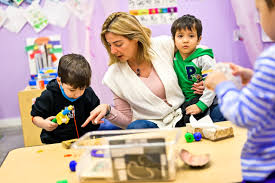Parental involvement in children’s education has long been recognized as a crucial factor in their academic success and overall development. The role played by parents in their children’s education can significantly influence their motivation, performance, and attitude towards learning. This essay will explore the various ways in which parental involvement impacts children’s education, the benefits it brings, and the strategies that can be employed to foster such involvement.
The academic achievement of children is greatly enhanced when parents are actively engaged in their education. Studies have shown that students whose parents are involved in their schooling tend to have higher grades, better attendance, and increased likelihood of completing their education. The encouragement and support provided by parents can instill a sense of responsibility and motivation in children, driving them to strive for academic excellence.
Communication between parents and teachers is another vital aspect of parental involvement. When parents communicate regularly with teachers, they are better informed about their child’s progress, strengths, and areas needing improvement. This knowledge enables parents to provide targeted support at home, reinforcing what is being taught in school. Moreover, teachers can gain insights into a child’s home environment and background, allowing them to tailor their teaching methods to better suit the child’s needs.
Homework and assignments offer another opportunity for parental involvement. Parents who assist their children with homework can help clarify doubts, reinforce learning, and ensure that assignments are completed on time. However, it is important for parents to strike a balance between offering help and encouraging independence. Over-involvement can lead to dependency, while under-involvement might result in a lack of guidance and support.
The emotional and psychological support provided by parents cannot be overlooked. A child’s confidence and self-esteem are greatly influenced by their parents’ attitudes and behaviors. When parents show interest in their child’s education, celebrate achievements, and provide constructive feedback, children feel valued and encouraged. This positive reinforcement can boost their confidence, making them more likely to take on challenges and persist through difficulties.
Parental involvement extends beyond academic support to include the development of social and behavioral skills. Parents who engage with their children in various activities, such as reading together, playing educational games, or discussing current events, help to develop critical thinking, communication, and problem-solving skills. These skills are essential for success both in and out of the classroom.
The role of parents in creating a conducive learning environment at home is also significant. A quiet, well-organized space for studying, free from distractions, can enhance concentration and productivity. Additionally, parents who model positive behaviors, such as reading regularly, valuing education, and exhibiting curiosity, can inspire similar behaviors in their children.
The involvement of parents in school activities, such as parent-teacher meetings, school events, and volunteer opportunities, further strengthens the connection between home and school. This involvement demonstrates to children that their education is a priority and that their parents are committed to supporting their learning journey. It also fosters a sense of community and partnership between parents and educators, creating a supportive network for the child.
While the benefits of parental involvement are clear, challenges exist that may hinder such involvement. Factors such as busy work schedules, language barriers, and lack of familiarity with the educational system can make it difficult for some parents to participate fully in their child’s education. Schools and educators can play a crucial role in addressing these challenges by providing flexible meeting times, offering resources and support in multiple languages, and educating parents about the school system and their role within it.
In conclusion, the importance of parental involvement in children’s education cannot be overstated. The positive impact on academic performance, emotional well-being, social skills, and overall development is well-documented. By fostering strong communication between home and school, providing academic and emotional support, creating a conducive learning environment, and participating in school activities, parents can play a pivotal role in their child’s educational success. Schools and educators, in turn, must work to support and encourage parental involvement, recognizing it as a key component of a holistic approach to education.









